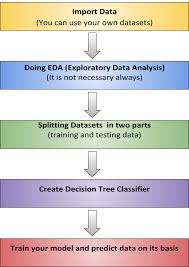Course Overview
The Machine Learning with Python course uses the most popular programming language to provide an in-depth understanding of the three main types of machine learning algorithms: supervised, unsupervised, and reinforcement learning. This will give your team a head start and a practical approach to building deployable machine learning models. Discover the many methods for putting these algorithms into practice and the business applications that support them.
Machine Learning with Python Objective
- Recognize the range and depth of machine learning (ML) applications and use cases in real-world circumstances.
- Use Python libraries to import and manage data, then divide it into training and test datasets.
- Techniques for data preprocessing, univariate and multivariate analysis, missing values and outlier management, and so on.
- Apply linear and polynomial regression, learn about ridge and lasso regression, and more.
- Implement SVM, Naive Bayes, Decision Trees, and Random Forests among other classification methods.
- Unsupervised learning is interpreted, and clustering algorithms are learned.
- Overfitting avoidance, Bias-variance tradeoff, Minibatch, and Shuffling, ML solution tuning
- Perceptron, Neural Networks, Basics of Neural Networks
Certification
Databricks Certified Machine Learning Professional.
eCornell Machine Learning Certificate.
Prerequisites
Knowledge with Python programming and data analysis foundations is necessary.
It is beneficial to have a basic understanding of statistics and maths.
Who Should Attend
Prior experience in computer programming is recommended as most tasks within this Specialization are conducted using the Python programming language…
Expected Learning Outcome
- In-depth Understanding of Algorithms: Gain a deep understanding of complex algorithms such as neural networks, support vector machines, decision trees, and ensemble methods.
-
Model Evaluation and Optimization: Learn techniques for evaluating model performance, including cross-validation, ROC curves, and precision-recall metrics. Understand hyperparameter tuning and optimization strategies.
-
Feature Engineering: Develop skills in selecting, creating, and transforming features to improve model accuracy and interpretability.
Benefits of Learning:
Advanced ML
Salary: $300K – $740K
* Job Growth: High
* In Demand: Yes
* Open Jobs: 60K+
* Proj 10Yr Inc: 55%
* Learning Effort: High
* Prerequisites: IT


